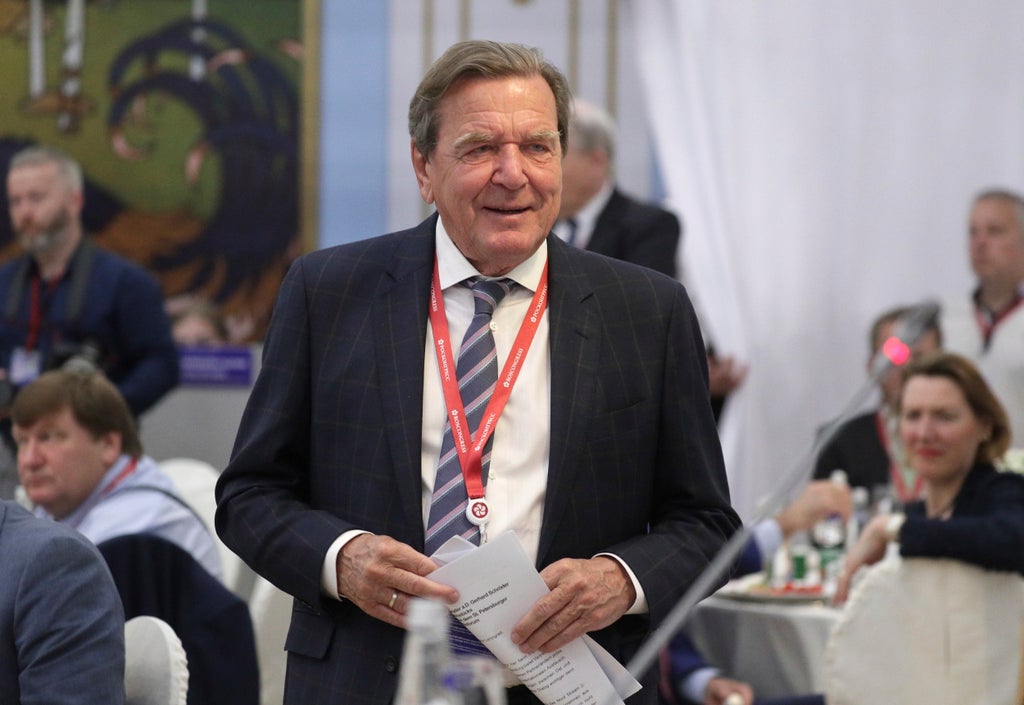
German Chancellor Olaf Scholz on Thursday asked former Chancellor Gerhard Schroeder to resign from his posts at Russian state-owned companies.
Schroeder, 77, is considered a longtime friend of Russian President Vladimir Putin — a relationship that has led to much criticism in Germany, especially since Russia invaded Ukraine last week.
Schroeder is chairman of the supervisory board of Russian state energy company Rosneft and also holds leading positions in the controversial Nord Stream 1 and Nord Stream 2 pipeline projects that aim to bring Russian gas directly to Germany, bypassing Ukraine. He is also slated to take on a supervisory board post for Gazprom, a Russian majority state-owned multinational energy corporation.
“My advice to Gerhard Schroeder is, after all, to withdraw from these posts,” Scholz said on the ZDF Television, according to the German news agency dpa.
Scholz stressed that Schroeder’s ties to Russian companies were not a private matter since he is a former chancellor.
“This obligation does not end when one no longer holds the office, but it also continues,” he said.
Schroeder, who served as the chancellor of Germany from 1998 to 2005 and is a member of the Social Democrats just like current Chancellor Scholz, has long been criticized for his close ties to Russia.
Earlier Thursday, the leaders of Germany's Social Democrats, Lars Klingbeil and Saskia Esken, said they had written a letter urging Schroeder to resign from his posts at Russian state-owned companies.
While a strong U.S. ally and NATO member, post-war Germany has also attempted to maintain good ties with Moscow, a policy driven by business interests and Germany’s energy needs.
But earlier this week, Scholz said Russia’s invasion of Ukraine required a dramatically different response from Germany than in the past and announced the country would send anti-tank weapons and surface-to-air missiles to Ukraine. That stunning decision — abandoning Germany's long-held refusal to export weapons to conflict zones — is considered nothing less than a historic break with the country's post-World War II foreign policy.







